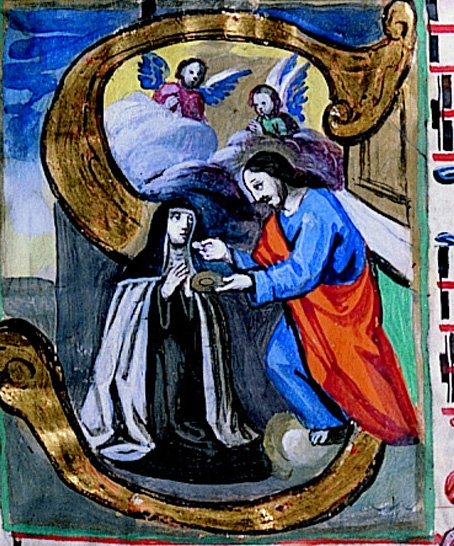“It is in your power to live and to die with this peace.â€
– Teresa of Avila
Our society is fraught with conflict, be it political, religious or personal. It might even be said that we, as a human race, thrive on conflict, as it seems to be a precursor to our growth and change. It provides a stimulus for disintegration of old thoughts and ways of being and regeneration for new modalities and paradigms. From the rebel teenager, to the warring couple, to international peacekeeping efforts or the political terrorist, their aim is the same – to overthrow, or keep at bay, what they perceive as a hindering force to their right to freedom (whatever that may be). But what is the real freedom we all seek? And can we not find another more peaceful method of change?
First, we need to look at the nature of conflict and to see how and where it arises.
Teresa of Avila (1515-1582), Spanish mystic and Carmelite nun, was very familiar with conflict. From a young age Teresa experienced a dichotomous inner relationship with herself. She developed a deep respect for the spiritual life through her father’s influence, but she also cultivated a great taste for the materialistic life through the nobility of her mother. She was ultimately split into two different modes of being and was unable to reconcile these two influences until late in her life, even while living in the monastery.
Conflict became as a personal paradigm for Teresa. She was incredibly strong-willed and began the battle with her own ego, which she clearly perceived as constantly rallying against the greater will of God. This caused her much internal pain and a sense of division, as she was unable to surrender her own thoughts and will. In her resistance, she felt the ego struggling to remain in control, and yet, she distinctly felt the pull of her inner spirit. This spirit was inviting her to another place – the place of freedom and peace. Separation from God was the cause of Teresa’s conflict, and only when she was able to join her soul with the divine spirit did she find peace. It was through surrendering the ego, not annihilating it, that enabled this to occur. It was not an immediate release however, but a gradual remembering and relearning by her soul.
As with Teresa, I believe that the paradigm of conflict is paramount in our society. The ego has been living a life of separation from the spirit, causing conflict to occur. On a personal developmental level change frequently occurs after a great inner tension and conflict has been felt and lived. On a political level that same tension and conflict causes a change in leadership and power, but unfortunately is often manifested and affected through violence and war. This framework and partnership of change and conflict now needs to be dismantled.
This regenerative process of change can be affected in a loving way. The great beauty about Jesus was that he brought the message of truth and love. Truth without love is harsh. Love without truth can become sentimental. The two together can bring about long-lasting and effective change, both in a personal and societal context. The truth can revolutionize the way we love and the way we love can revolutionize the way we live.
Acting in a loving and compassionate way was very important to Teresa and became the foundation for the success of her communal monasteries. Let us take this same concern into our workplace, into our homes, and into any situation that requires a breaking down of the old ways. Above all, let us be kind to one another and our selves. If we can affect a gentle process of change internally, then we can also manifest this in our external environment.
Teresa’s lifelong quest, though lived over four centuries ago, is still an example and inspiration for us to follow today. We can carry placards in the street demanding peace not war, but of what use is that if we are still warring within our own selves. We each have the responsibility to look deeply within and to be honest about the state of our own being. We each need to see how we are in conflict with the natural state of our soul. We need to look and see where we are split in our lives. Where we find conflict in our lives let us look deeply for the origin, and surrender it to God. Where we find places of unrest and lack of peace, let us surrender this too. In turning to our interior life we can lovingly heal any splits that may have occurred throughout our lifetime. We can release ourselves from the dichotomous relationship that so many of us have become accustomed to.
The definition then, of real freedom is inner peace, known through acceptance and surrender. And the way of truth and love is the way of change. Like Teresa, we can become examples of what it means to live a wholesome life, surrendered to the divine will, and living in peace on this planet.
Megan Don is the author of  Meditations with Saint Teresa of Avila: A Journey into the Sacred.
Based on the book Meditations with Teresa of Avila © 2011 by Megan Don. Printed with permission of New World Library, Novato, CA. www.newworldlibrary.com <http://www.newworldlibrary.com/>

